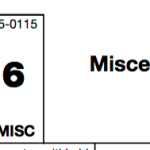Google Must Answer Lawsuit For Manually Removing Websites From Its Search Index–E-ventures v. Google (Forbes Cross-Post)
You’d probably be hopping mad if Google manually kicked your website out of its search index; and if you’re an SEO company and Google also kicked all of your clients out, you’d probably feel pretty litigious. But courts have repeatedly…
Talk on Section 230 and Consumer Reviews
In April, I gave a talk at the University of Sussex on Section 230 as economy policy by encouraging consumer reviews that improve marketplaces. If this sounds vaguely familiar, you’re not imagining things. I’ve been working on this paper since…
Is Uber Liable When Drivers Sexually Abuse Passengers? (Forbes Cross-Post)
Uber allegedly has over 300,000 drivers. In a population that large, inevitably some bad apples will do stupid or illegal things. Uber tries to curb such behavior by doing background investigations (which it has also been sued for) and removing…

FTC Wins Deception Case Over Faux User-Generated Content–Fanning v. FTC
John Fanning challenged the FTC findings that the website he developed, named Jerk.com, materially misrepresented its attributes. On appeal, the First Circuit affirms. Jerk.com resembled Ripoff Report, but for people. The court’s description of the site and its offerings are…
Google Isn’t Required To De-Index Negative Ripoff Report–Fakhrian v. Google (Forbes Cross-Post)
We’ve frequently seen that many people want a “magic wand” that would allow them to decide exactly what search results Google shows for their names. Hence, the popularity of the so-called “right to be forgotten” in Europe, with nearly 1.5M…
The Pros and (Scary) Cons of the New EU Trade Secret Directive, Part 2 (Guest Blog Post)
By Guest Blogger Sharon K. Sandeen Part One of this post gave an overview of the new EU Trade Secret Directive (the “TS Directive”) that will be effective shortly (on the twentieth day after it is published in the Official…

512 Safe Harbor Applies to Content Submitted By Independent Contractors–BWP v. Examiner
BWP owns the rights to various celebrity photos. Examiner.com is a “entertainment, news and lifestyle network” that relies on content submitted by independent contractors confusingly called “examiners.” The Examiner’s written agreement specifies that “the examiners” are contractors, not employees. The…

Q1 2016 Quick Links, Part 3 (DOJ v. Apple, ISIS, Censorship & More)
Surveillance * The whole Apple v. DOJ fracas was insane! NY Times: In Nod to Law Enforcement, Obama Ends Attempt to Straddle Privacy Divide. Vice: Obama’s Call for Encryption ‘Compromise’ Is Hypocritical. NY Times: For Apple, a Search for a…

Sketchy Suit Between Native Advertising Competitors Produces Sketchy Section 230 Ruling–Adblade v. RevContent
This case is filled with sketchiness. First, the litigants compete in the “native advertising industry,” which doesn’t have a great reputation (and this lawsuit isn’t likely to improve it). Second, the ads in question promote wrinkle creams, diet pills and…

Alleged “Conspiracy” Among Disgruntled Ex-Employees Defeats Section 230–Tanisha v. Chandra
[Note: as I’ve mentioned before, sometimes Westlaw randomly spits out cases months after they were issued. This opinion is 4 months old but just appeared in my Westlaw alerts this week. Despite its age, I’m blogging it because of its…
